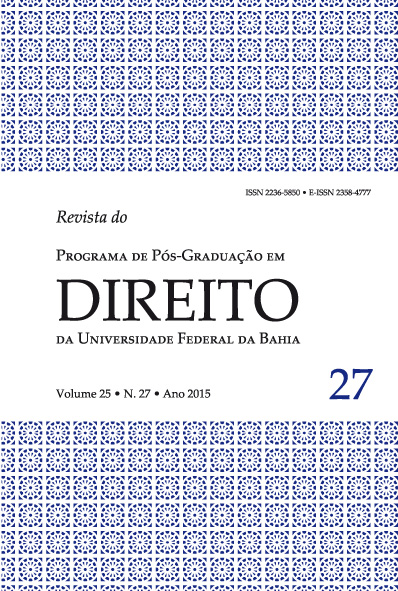Bem-estar dos animais não humanos e abates ritualísticos: liberdade religiosa e limite do bom-costume / Non-human animals well-being and ritual slaughter: religious freedom and good custom limit
DOI:
https://doi.org/10.9771/rppgd.v25i27.15223Resumo
This article defines the shape of legal balancing between
animal well-being and religious freedom. With the development of
human society and numerous areas of human knowledge and, thereafter,
of Law itself, mainly the environmental one, it is perceived as
essential to discuss the present need to defend the animal’s well-being.
Thereby, it becomes mandatory to investigate the boundaries of
religious freedom itself, besides the related national and community
legal evolution, as an attempt to critically elucidate the tempestuous
process of sentient beings reification. It is worth noting that, with
technological progress, a significant massification of the food production
process was allowed, which increased the reification process of
the animals, seem as res, thing, before the capitalist system. Nowadays,
however, the technological progress can already be thought as a
mechanism tied to the guarantee of a better well-being for the animals.
Therefore, it is questioned if previously stunning is needed or not to
when it comes to animal slaughtering, in its own legal and moral limits,
including the analysis of the applicable sanction.
Downloads
Downloads
Publicado
Como Citar
Edição
Seção
Licença
1. Autores mantém os direitos autorais e concedem à revista o direito de primeira publicação, com o trabalho simultaneamente licenciado sob a Licença Creative Commons Atribuição 4.0 Internacional que permite o compartilhamentodo trabalho com reconhecimento da autoria e publicação inicial nesta revista.
2. Autores têm autorização para assumir contratos adicionais separadamente, para distribuição não-exclusiva da versão do trabalho publicada nesta revista (ex.: publicar em repositório institucional ou como capítulo de livro), com reconhecimento de autoria e publicação inicial nesta revista.
3. Autores têm permissão e são estimulados a publicar e distribuir seu trabalho online (ex.: em repositórios institucionais ou na sua página pessoal) a qualquer ponto antes ou durante o processo editorial, já que isso pode gerar alterações produtivas, bem como aumentar o impacto e a citação do trabalho publicado

